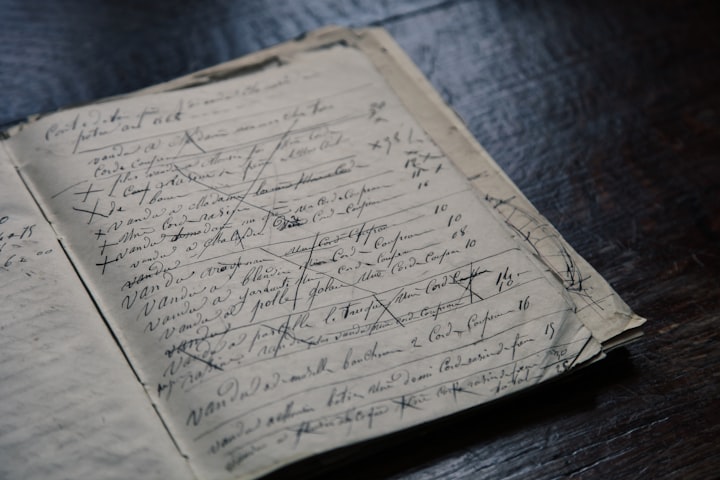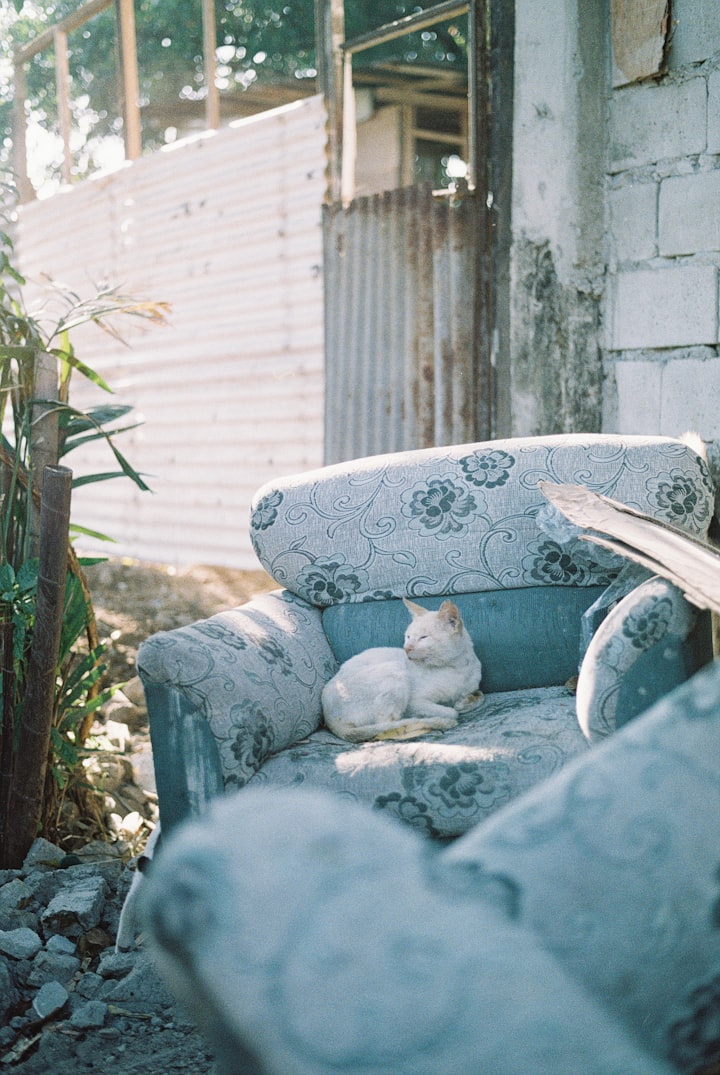How do you mark the passage of time? Is it in birthdays? Years? Events? Moments? Some people don’t even recognize the passage of time. We did though, we always did.
He called them quarterlies. The “days of reflection.” At the end of each season, we would be required to think back on our experience and fill the pages of a journal with thoughts. We could write whatever came to mind, but it had to be within the past season and based in truth.
Growing up, I had no idea that this was out of the ordinary. I remember this one day in second-grade, my new friend, Annie, came over on our spring quarterly. Annie had slick black hair that was always pulled back into a braid. I loved how clean it looked and wished someone knew how to braid my hair like that. It was her first week at school, and we became inseparable from then on. Anyways, it was just after school and I didn’t realize the time. When my dad got home from work, he was surprised to see Annie there.
He pulled me into the kitchen and calmly whispered, “Morgan, today is our quarterly. What is Annie still doing here?” Though he didn’t get frustrated, he told Annie it was time to drive her home. With a furrowed brow, she asked me what she did wrong. I just explained to her that I lost track of time and have to begin my quarterly. Her furrowed brow did not leave her face.
***
“Today I met this girl named Annie. She’s in my second grade class. She moved here from Illinoy. I've never had someone in class come right at the end of the year. That makes me feel speshul. Like she was chosen just for me. I think we are already friends. It is Friday. Friday means they are serving pizza at lunch time. My dad gave me extra money for a treat. After school, I walked with Annie to Leonard’s to get ice cream. She got cookies and cream. I got chocolate covered in chocolate sprinkles. Like I always do. My dad orders the same thing too. I’m really excited for summer. After that, we walked to my house and played outside. I wonder what her house looks like. I forgot today was quarterly day. Annie had to leave. She looked confused. I don’t know why. Now, I am writing. I like writing but I didn’t want Annie to go. But today was a fun day. I am happy to have a new friend.” Signed, Morgan. Spring Quarterly, June 20th, 2007.
***
At recess the next day Annie ran up to me, shouting, “Morgan? What is a quarterly? Why did I have to leave your house yesterday?” When I explained it to her, she simply said, “That’s weird,” and ran over to the monkey bars.
I couldn’t move on quite as quickly. When I found out that this wasn’t a normal thing to do, I started to resent it. I was mad that I had to spend all day doing what I thought was an academic task when my friends could play outside or hang out together. And when I started to resent it, I put less and less effort into them. Why should I be forced to do something that has no true purpose?
See, the point of the “quarterlies” was to take the time to learn from our own experiences. To recognize our strengths and areas for growth, marking fun memories and ultimately, the passage of time. Marking time. Something to preserve our history. This purpose was never explained, just implied. But I was too young to view it as practical or valuable and rather, thought that it was just an oddity to our family.
My younger sister, Evie, didn’t question it as much as I did...she enjoyed sharing something in common with both me and our dad. It probably saved her some trouble in the long run.
My dad would do these quarterlies with us but kept a daily journal too. He wrote down everything from shopping lists to what he wanted for his kids when we grew up. The walls were filled with his words. The only difference was he never went back to them. He didn’t re-read them or scan the pages when he got bored. There were days where he wouldn’t even touch the finished journals.
***
“Occhio non vede, cuore non duole.”
Sitting under the living room lamp and closing his journal for the night, I would sometimes hear him repeat this phrase under his breath. Every time I stayed up late and peaked into the living room, I asked him what it meant. He never really explained it–just that it was something his mother would tell him. So, I did what any overly curious child would do and did my own research. I grew up knowing some Italian, but never to the point where I was bilingual like my dad. Though, Evie far surpassed me when she began learning. I bet she is fluent at this point.
Directly, the translation came up as: “the eye cannot see, the heart cannot hurt.” Basically, it means out of sight, out of mind.
***
When I was in high school, I hypothesized that this was his therapy. I took psychology with Mr. Lane, and was convinced that all of this was a symptom of OCD. That writing down his thoughts made him calm and organized. He was able to free his mind once the words were solidified on the page.
***
“Today is the winter quarterly, marking the end of these frigid months. A lot has happened since my last writing day. For the second half of Mr. Lane’s psychology class, we have been studying psychological disorders. It’s hard for me not to self-diagnose a lot of things. The main one being these damn quarterlies and trying to figure out why I’ve been forced to do them from the moment I could write. I think it’s possible dad has OCD. No. He definitely has OCD. He is so controlling about not just his writing, but ours too. And he won’t even explain it. He just keeps everything up there in his brain or down in a journal. Nothing is put out into the air. I could barely tell you a thing about him. But thinking of it as a mental health issue, kind of makes me want to do this journal more. I don’t know why. Maybe I could find a diagnosis for myself explaining why I have the need to please people...maybe dependent personality disorder? But I mean, really. This is the most I’ve written in years. They have slowly disintegrated into sparse sentences. This is a fully thought-through paragraph. And see, I’ll even do more. I’ll write about my social life. The highlight of the winter months after New Year's has been ice skating with Annie and my group of friends every Friday night. To be honest, I don’t know if dad ever picks these journals up. I never asked. I should’ve. Maybe I will after writing. Well anyway, if you’re reading this, hello father. Are you glad to see I diagnosed you? You will definitely not be glad. But you’re welcome for not bringing it up in person and just silently observing. In the case that you are reading this, I will omit the other parts about my Friday nights. I already told you, it’s just me, Annie, Jan (who you call Jen...even though I’ve known her since KINDERGARTEN) and Maya. No! Justin wasn’t there. Peter doesn’t go either. I promise! Talk to you in a minute dad.” Signed, Morgan. Winter Quarterly, March 20th, 2016.
***
As much as my teenage self would have loved to be right about my dad (and maybe she was a little right) that isn’t the full story. It turns out, he was just afraid of being forgotten. He didn’t want to get lost in time. I didn’t find that out until it was too late. Because I subconsciously inherited that trait too.
When it was time to begin searching for colleges, I knew exactly what I didn’t want to do. I didn’t like science, or math, wasn’t great at history, and had a weird relationship to literature...clearly. I loved writing fiction and hated writing anything else. However, I was too embarrassed to go down the fiction road because of the endless shelves scribbled with very real words of non-fiction covering our home. So instead, I took a shot in the dark and went to school for studio art. I succeeded in everything except drawing; it was the one thing I could never get the hang of. My hands could handle a paintbrush or a slab of clay but became brittle and floppy when a pencil was placed in my hand.
I too needed to make something tangible that couldn’t be erased. I didn’t want to get lost in time either.
Our obsession with time tethered us together. Though we never put it in words, we knew we shared the same fear. This created a bond that couldn’t be broken.
Even when I no longer lived at home, and when my dad stopped reminding me, I would do the quarterlies. Partially out of habit; people tend to lean into rituals and rely on them. But partially because I was afraid not to do it. What would happen if I didn’t mark my time? Would the months merge together? Would I stop paying attention to details? I only know how to mark time. Even when I was only writing sentences out of rebellion, I was still forced to think about the time that passed.
***
Two weeks ago, the night of December 14th, I returned home for winter break. I haven’t talked to my dad since Thanksgiving. Not for a particular reason, just because of distance...and time; a lack thereof. Evie plans on coming home tomorrow morning and so I entered the silence of the house.
As I opened the front door, I was greeted by the fragrance of old firewood and cedar. Something our cabin home never lacked, which was always a welcoming scent from my upbringing. I was engulfed by the darkness of the house, but muscle memory has a way of understanding the natural layout. Even in the pitch black, I could move through the rooms with ease. When I turn the corner, a flicker of light remains. The single lamp is turned on in the living room. I expected to see the image of dad sitting in his rocking chair, writing in his journal.
But the rocking chair is empty. I let out a few meaningless shouts of “Hello!” and “Is anyone here?” even though I knew the answer. No one is home.
Moving closer, I saw a torn-out journal page with just one line, “Occhio non vede, cuore non dole.”
It’s his handwriting.
I call him. He doesn’t answer. I call him again, leave a voicemail. Five minutes later, I call again...voicemail full. Fifteen minutes later, I call again. It only rings once. The phone is off or dead.
I sit in the rocking chair, note in hand, scrolling through the pages I have written over the years. The spring quarterly, when Annie was over, the first day we met. The winter quarterly where I thought my dad was maybe reading my journals. He clearly never did because he never asked about Justin or Peter. He should’ve asked about Justin and Peter. They were both there every weekend, contrary to my statement. Justin and I started dating the week after I wrote the quarterly.
I wait scrunched up in dad’s special spot until sunrise when Evie will come in and lift me up like she always does.
“Morg, you in there?” my head jolts up, unaware that I have dozed off.
“Did you sleep on the rocking chair?” Unable to formulate a sentence, I hold up the crumpled piece of paper.
Evie reads aloud, “Occhio non vede, cuore non dole...what is this?”
“It’s dad’s. He used to write down this saying all the time. It was just left here on the chair. Do you know where he is?”
“No...did he leave anything else?”
“I haven't checked yet,” I reply. I don’t quite know why I haven’t checked yet. Evie doesn’t seem disappointed in me, just confused. How did I just sit here the whole night waiting for answers to come to me?
Evie helps me up from the chair, like I knew she would, and we start to search the house. The air feels crisp and stark; it has shifted from the warmth that welcomed me earlier. We skim through pages and pages of dad’s recent journals, trying to find something like another note or his phone, until we make it to the door of his bedroom.
I can hear Evie’s breath by my ear, I swear I can hear myself sweating.
The door handle turns, and the creaky door ushers us into the room. The empty room. Except for a little white piece of paper carefully laid on the left pillow.
“Emergency at work. Be back ASAP. Welcome home. XO Dad.” His phone sits unplugged on the bedside table. My stomach slowly begins to unknot itself.
We both expected the worst. We barely even considered any form of reality. We were too afraid of being left alone that we were convinced we would be–one way or the other. Whether it was the generation we grew up in or the way we were raised, we gave up hope for any other outcome; frankly, I never had hope that there would be another outcome once I saw the note. I had already accepted this version of reality.
This is when I finally understood my dad. This is exactly why he writes. He is convinced he will soon be forgotten and that he needs to write to stay alive. He doesn’t ever hope for another outcome, maybe he never had the hope to begin with either. He accepts it as it is, and continues to mark all thoughts and memories. Because then he can’t be forgotten. He will be forever memorialized in words.
Evie comes up to me, puts her arm around my shoulder and says, “Well, shit,” and releases a loud but breathy laugh. Her lip begins to quiver and her nose scrunches. The laugh slowly transforms into a cry. And suddenly, I am crying with her.
“What the hell are we crying for?” Evie exclaims through both laughter and tears.
“Time,” I let out in the midst of a whimpering inhale.
Evie and I release onto the puffy, dated, floral comforter and wait for the click of the front door. An hour or so passes and we lay between silence and scattered conversation.
When he eventually arrives, bringing our favorite apple cider doughnuts through the door, my immediate reaction is to yell at him, “Where the hell were you? Why didn’t you call first saying that you wouldn’t be home? What is with this creepy note you left on the rocking chair? Speaking of, why was the rocking chair light the only light on in the house? What was your emergency at work? You never have emergencies at work! What is going on?”
This may have been my longest plea for love and attention that I have ever made, but one that was long overdue.
Evie similarly bombards him, adding remarks in between my questions, “Yeah...What was that all about? Why is your voicemail box full? Why’d you freak us out like that? Mhmm...What she said!”
Instead of meeting us with force, his face became almost translucent. He had no clue that being gone would ever cause us such disarray and hurt.
“I’m...so incredibly sorry,” he expresses, with his eyebrows leaning up and eyes beginning to droop, “Really, I am. I didn’t–”
Evie cuts him off, “Think? No. You didn’t think at all. How could you think we wouldn’t care? Did you assume we would just forget that you were supposed to be here, in our home?”
There that word is again...forget.
“I guess I did–assume that. I’m so, so sorry.”
And he meant it. He was so afraid of being forgotten that he didn’t recognize what was in front of him: people who remember, who will always remember. Not words, not pages, not scribbles in a journal.
We stand in silence until our tears run dry and our embrace weakens our muscles. The distance between the three of us has subsided, and we all understand each other, even though it isn’t said aloud. A mutual and silent comprehension; a common occurrence in our household. This tranquility is interrupted by my growling stomach and dad says, “I think that means...it’s time for doughnuts.”
About the Creator
KB
A snippet of life. Some real, some not. Thanks for reading!







Comments
There are no comments for this story
Be the first to respond and start the conversation.